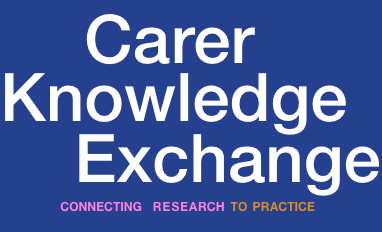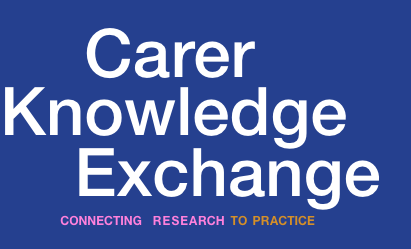‘Is There Anything Else You’d Like to Tell Us About Your Experience?’
Orientations Towards Listening to Open-Ended Survey Responses
Published Date: 6.12.2024
Theme: Developing skills and knowledge
Sub-theme: Self-advocacy
Verification Statement
This publication / resource is hosted on a publicly available external link. If the full text is not publicly accessible, summary points are included and a contact method for the author(s) is provided, where available.
The summary information presented is based on content submitted by an author or other user, along with publicly available information about the publication / resource added by the Carer Knowledge Exchange team.
All content is reviewed, edited and approved by the Carer Knowledge Exchange team, in line with our Submission Guidelines.
To report an issue or request a change, please complete our Feedback Form.
Theme: Developing skills and knowledge
Sub-theme: Self-advocacy
Verification Statement
This publication / resource is hosted on a publicly available external link. If the full text is not publicly accessible, summary points are included and a contact method for the author(s) is provided, where available.
The summary information presented is based on content submitted by an author or other user, along with publicly available information about the publication / resource added by the Carer Knowledge Exchange team.
All content is reviewed, edited and approved by the Carer Knowledge Exchange team, in line with our Submission Guidelines.
To report an issue or request a change, please complete our Feedback Form.
‘Is There Anything Else You’d Like to Tell Us About Your Experience?’
Orientations Towards Listening to Open-Ended Survey Responses
Published Date: 6.12.2024
-
Author/ Authors
Giselle Newton,
Emma Kirby,
Lukas Hofstätter ,
Sarah Judd-Lam,
Louisa Smith,
Brendan Churchill,
Iva Strnadova,
Christy E. Newman
-
Suggested citation (APA 7th edition)
Newton, G., Kirby, E., Hofstätter, L., Judd-Lam, S., Smith, L., Churchill, B., Strnadová, I., & Newman, C. E. (2024). ‘Is There Anything Else You’d Like to Tell Us About Your Experience?’ Orientations Towards Listening to Open-Ended Survey Responses. Sociological Research Online, 0(0). https://doi.org/10.1177/13607804241287628
Long Summary
While survey research design tends to prioritise closed questions with predetermined responses, many surveys conclude with an open-ended ‘anything else you would like to tell us?’ question. This question, designed to elicit feedback or create opportunities for respondents to share additional information, offers significant potential for insight into respondents’ experiences. Yet, the extent to which these open-ended data are listened to remains opaque. In this article, we outline and reflect on our approach to a reflexive thematic analysis of responses to an open-ended survey question, to foreground listening. Drawing on responses (n = 1746) from a national survey of informal carers in Australia, we explore how the final ‘anything else?’ style question of a survey offers scope for fostering ongoing engagement (via survey feedback and context), recognising less visible experiences (through detailed personal accounts), and attending to respondents’ needs (via calls for attention and action). We discuss our approach to sociological listening, and the practicalities therein, including experiences of discomfort, and the challenges of responding to responses. In doing so, we argue that engagement with the data derived from open-ended survey responses is not only fruitful for generating feedback and contextualisation within self-administered survey design, but that such data also hold considerable opportunities for meaningful listening, particularly in contexts where respondents lack recognition and visibility.
Author's / Publisher's Contact Details:
emma.kirby@unsw.edu.au
Key Messages for Carers
- Carers can communicate their needs in surveys.
Key Messages for Policy Makers
- Engagement with the data derived from open-ended survey responses is not only fruitful for generating feedback and contextualisation within self-administered survey design, but that such data also hold considerable opportunities for meaningful listening, particularly in contexts where respondents lack recognition and visibility.
There are 12 other results by the same Authors
View All



